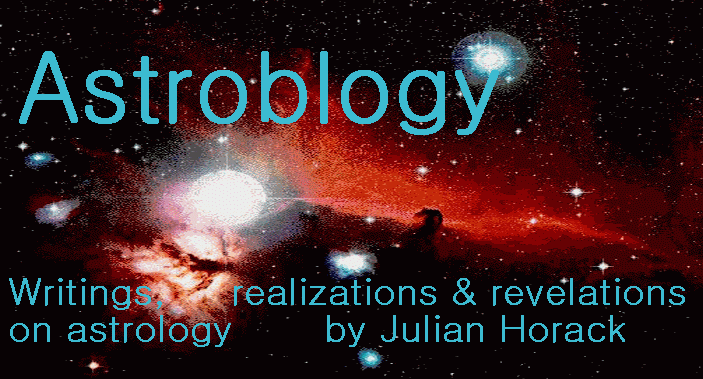Even though astrology is studied by those who enjoy it, very few modern astrology writers encourage readers to interpret astrology in any other way than allegorically with appreciation for the ancient system, as an admirer might a dead language and the idiosyncrasies of the people who used it. It helps those on a search to find meaning in a sometimes apparently random world; to categorize their world with something that sounds systematic; to answer questions and shed light on themselves and their place in the system.
The other day I took Marcus Aurelius for his morning walk and wondered, as he lifted his leg beside a church wall, if God would forgive him for his indiscretion. In India the priests at some temples wouldn’t even offer the fruit, milk or grains to their gods if a dog had so much as looked at any of it. Then I reminded myself not to be so superstitious and left Marcus to his duties. In a sense astrology is like Christianity; you accept on faith a mythical doctrine upon which to base your judgment of reality. Christianity has the Father and the Son and sometimes the Mother, whereas astrology has some mythic Greco-Roman gods –Jupiter, Mercury and Diana (Moon) and even a few more. Of course in astrology we interpret it all symbolically and as a pastime, while in Christianity lives depend on it. Astrology is a mantle to be worn lightly as an alternative calendrical system of timing events of varying cycles based on earlier observers’ experiences. Reality still rests with its feet on the ground and its eye on the stock market indicators. Other than that astrology is an interesting tool to engage the mind and ego in self-analysis by attributing personal attributes to the archetypal states discussed. The archetypes and deities are projections by us of our own inner potentials and personality types. Before today’s neurology labs were invented scientists used to use other labels to measure and record their observations on human behaviour, and these scientists concurred worldwide in a web of their own agreement from Europe to the Middle East to India, much of the old world basically. Nowadays, even here on the Garden Route the astrologer, psychiatrist or counselor does the job of an old time priest in dealing with issues of the psyche, Latin for soul. Anyone inspired enough can study the systems of the various researchers and graduate as a qualified advisor in that field. In other words they have some legitimacy even though they are no more than theories. The theory that the constellations around the earth, known as the zodiac belt, can be imbued with meaning based on cyclic observations is one that forms the foundation upon which astrologers base their observations.

No comments:
Post a Comment